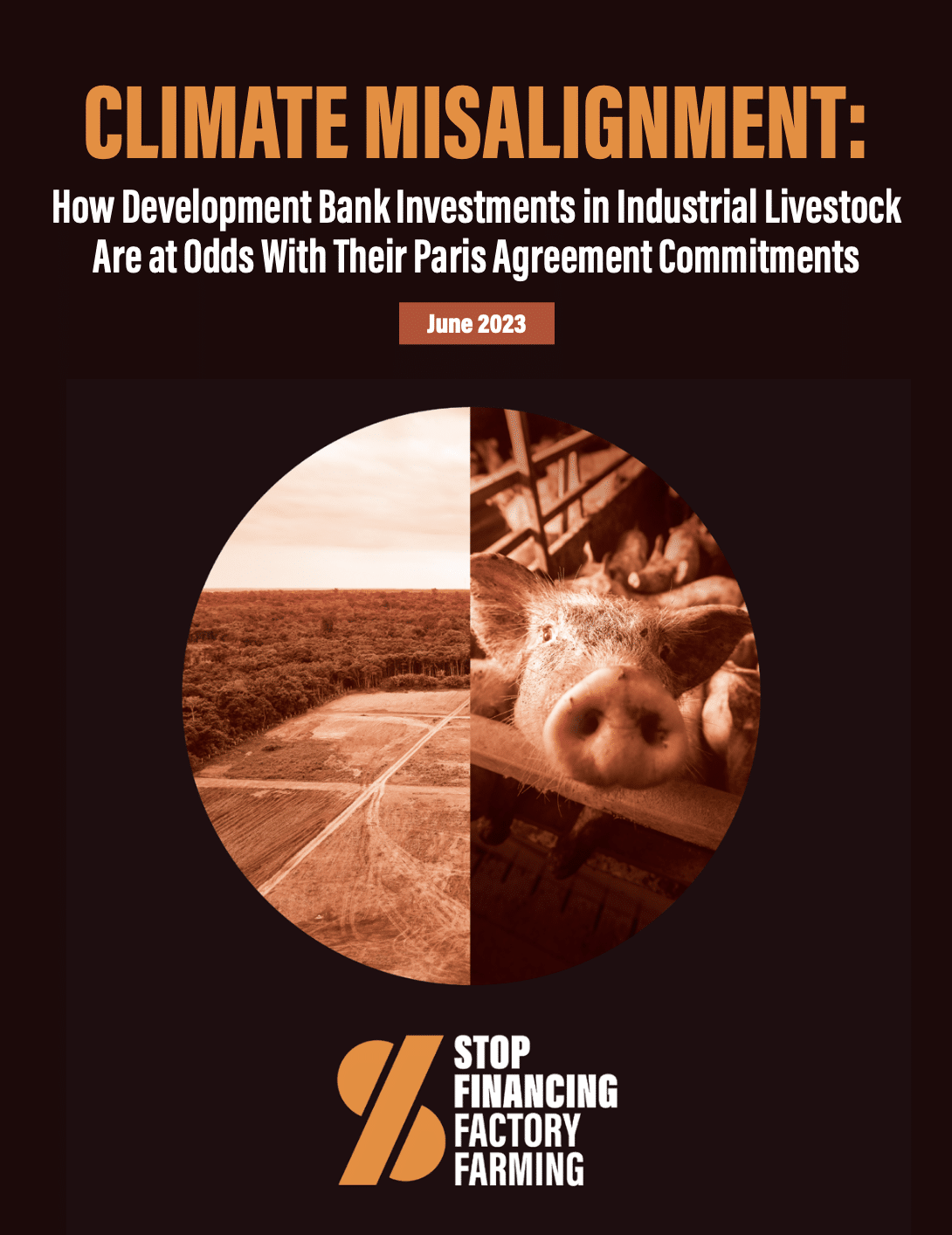- Home
- Food & Agriculture
- Animal Agriculture
- Climate Misalignment
Climate Misalignment
How Development Bank Investments in Industrial Livestock Are at Odds With Their Paris Agreement Commitments
Download the executive summary
Download the report
Read the Inside Climate News story and our op-ed
This report, authored by Friends of the Earth on behalf of the Stop Financing Factory Farming (S3F) campaign, and endorsed by eighteen civil society organizations, argues that multilateral development banks’ (MDBs) investments in industrial livestock are at odds with their commitments to align their investments and activities with the Paris Agreement. With just over six years left to avoid the most catastrophic effects of climate change and rein in factory farming-driven crises of deforestation, biodiversity loss, and the overuse and pollution of the planet’s air, land, and water, the S3F campaign is calling on MDBs to stop financing the expansion of the global industrial livestock sector.
”Climate Misalignment” documents how MDBs’ frameworks for aligning their investments with the Paris Agreement are resulting in misclassification of industrial livestock investments as compatible with the Agreement’s mitigation and adaptation goals, and urges development banks to exclude industrial livestock and feed operations from sectors they consider “Paris-aligned.” The report makes several recommendations for improving climate mitigation requirements for any industrial livestock investments, including mandatory Scope 1-3 greenhouse gas (GHG) reporting and time-bound absolute emission reduction targets.
The report details livestock’s contributions to climate change, including that the sector contributes up to a fifth (19.6%) of global GHG emissions and a third of the world’s methane emissions. Because methane has over 80 times the global warming potential of carbon dioxide (CO2) over a 20-year timeframe, swift and absolute reductions from the livestock sector are vital to keeping the Paris Agreement climate targets within reach. According to leading researchers, even if fossil fuel emissions were immediately halted, livestock emissions could make it impossible to limit warming to 1.5°C and difficult to limit it to “well below” 2°C.
Where livestock production can improve nutrition, food security, and livelihoods, the report recommends that MDBs, in consultation with local communities, should shift their support toward diversified, agroecological, mixed crop and livestock and plant-based systems that deliver climate and biodiversity-related benefits and support small-scale farmers who are the backbone of community food sovereignty and food security. Providing such support would also enable MDBs to better meet their pledges to align their investments and activities with the UN Sustainable Development Goals (SDGs).
About the authors: Kelly McNamara is a senior research and policy analyst and Kari Hamerschlag is deputy director of food and agriculture at Friends of the Earth U.S.
This report is endorsed by the Stop Financing Factory Farming (S3F) campaign and the following organizations:
Bank Information Center (BIC)
Brighter Green
Catholic Agency for Overseas Development (CAFOD)
Center for Ecosystems Research and Development-Uganda (CERD)
Chilis on Wheels
Climate Save Movement
Compassion in World Farming
Family Farm Defenders
Feedback Global
Fórum Nacional de Proteção e Defesa Animal
Global Forest Coalition
In Defense of Animals (IDA)
International Accountability Project (IAP)
Plant Based Treaty
ProVeg International
Real Food Systems
Sinergia Animal
True Animal Protein Price Coalition
World Animal Protection

